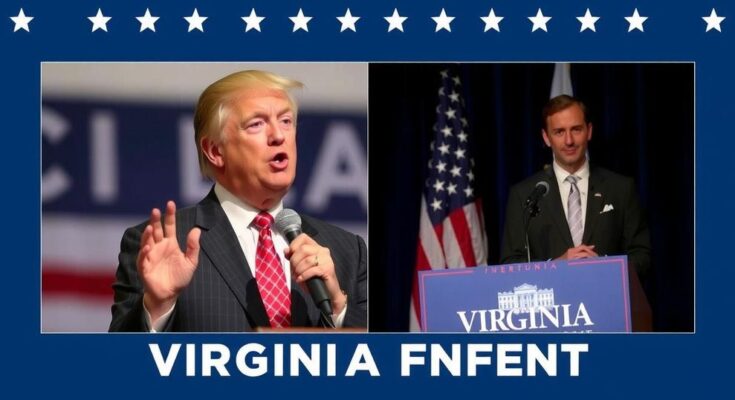The Virginia gubernatorial primaries in 2025 are characterized by minimal opposition: Abigail Spanberger is running unopposed as the Democratic nominee, while two Republicans, Winsome Sears and Merle Rutledge, contend for the nomination. This election reflects a historical pattern of few competitive primaries in Virginia. Meanwhile, Alaska has retained its ranked-choice voting system amidst broader electoral reform discussions, as nationwide recall election statistics indicate a consistent trend of targeted officials facing removal.
As Virginia prepares for its gubernatorial election in 2025, the political landscape appears relatively calm, particularly in the Democratic primaries, where Abigail Spanberger stands unopposed. On the Republican side, Winsome Sears and Merle Rutledge are contending for the nomination, with Sears receiving substantial media attention and the backing of the current governor, Glenn Youngkin. This election cycle follows a pattern of low opposition within Virginia’s gubernatorial primaries, historically characterized by unopposed races.
Abigail Spanberger, a CIA veteran and current representative for Virginia’s 7th Congressional District, emphasizes her campaign on affordability issues, particularly childcare costs. “I have met far too many parents across Virginia who sometimes make the hard choice to back away from the workforce, all because the cost of child care may be greater than the parents’ take-home pay.”
In contrast, Lt. Governor Winsome Sears focuses on labor laws, advocating for Virginia’s right-to-work policy and suggesting that such regulations have significantly contributed to the state’s economic success. Meanwhile, the history of competitive primary races for both parties reveals that both the Democratic and Republican primaries have frequently included unopposed candidates, with only a few competitive contests over the last several election cycles.
In the broader context, the potential outcomes of this upcoming election could shift the balance of power in Virginia’s governorship. Since 1997, the party that lost the preceding presidential election has typically retained control of this office. Should Democrats succeed, they would reclaim the governorship for the first time since 2022. Conversely, if Republicans win, they would achieve consecutive victories for the first time since the latter part of the 1990s.
Additionally, the recent developments in Alaska’s electoral system signal ongoing discussions regarding voting methodologies across the United States. Following a recount, Alaskans voted to uphold ranked-choice voting. In the face of defeats for similar measures in five other states, FairVote CEO Meredith Sumpter remarked that while challenges exist, the prospects for ranked-choice voting continue to appear optimistic.
In the interim, political analysts are observing the frequency and outcomes of recall efforts, noting that approximately 16% of officials targeted for recall from 2014 to 2023 faced removal from their positions. This encapsulates ongoing trends within electoral politics, particularly in relation to public accountability.
The upcoming Virginia gubernatorial election found in 2025 is poised to attract attention due to its political implications, particularly with term limits preventing incumbent governors from running for reelection. The Democratic primary, featuring Abigail Spanberger, is notably unopposed, while the Republican primary introduces competition between Winsome Sears and Merle Rutledge. Historically, Virginia’s gubernatorial primaries reflect a pattern of unopposed candidates, raising questions about the state’s electoral dynamics. Moreover, the context of ranked-choice voting continues to evolve, especially in states like Alaska where voters chose to maintain the system, contrasting starkly with the rejection by voters in other states. This backdrop of voting reform and political engagement adds another layer of complexity to the electoral landscape leading into 2024 and 2025.
In summary, the Virginia gubernatorial primaries illustrate a trend toward minimal opposition within the state’s electoral process, particularly on the Democratic side. With Spanberger unopposed, and competition brewing among Republicans, the political stakes remain high as the election approaches. The context of electoral reform and recall initiatives further emphasizes the evolving dynamics of voter engagement and political accountability in contemporary governance.
Original Source: news.ballotpedia.org




